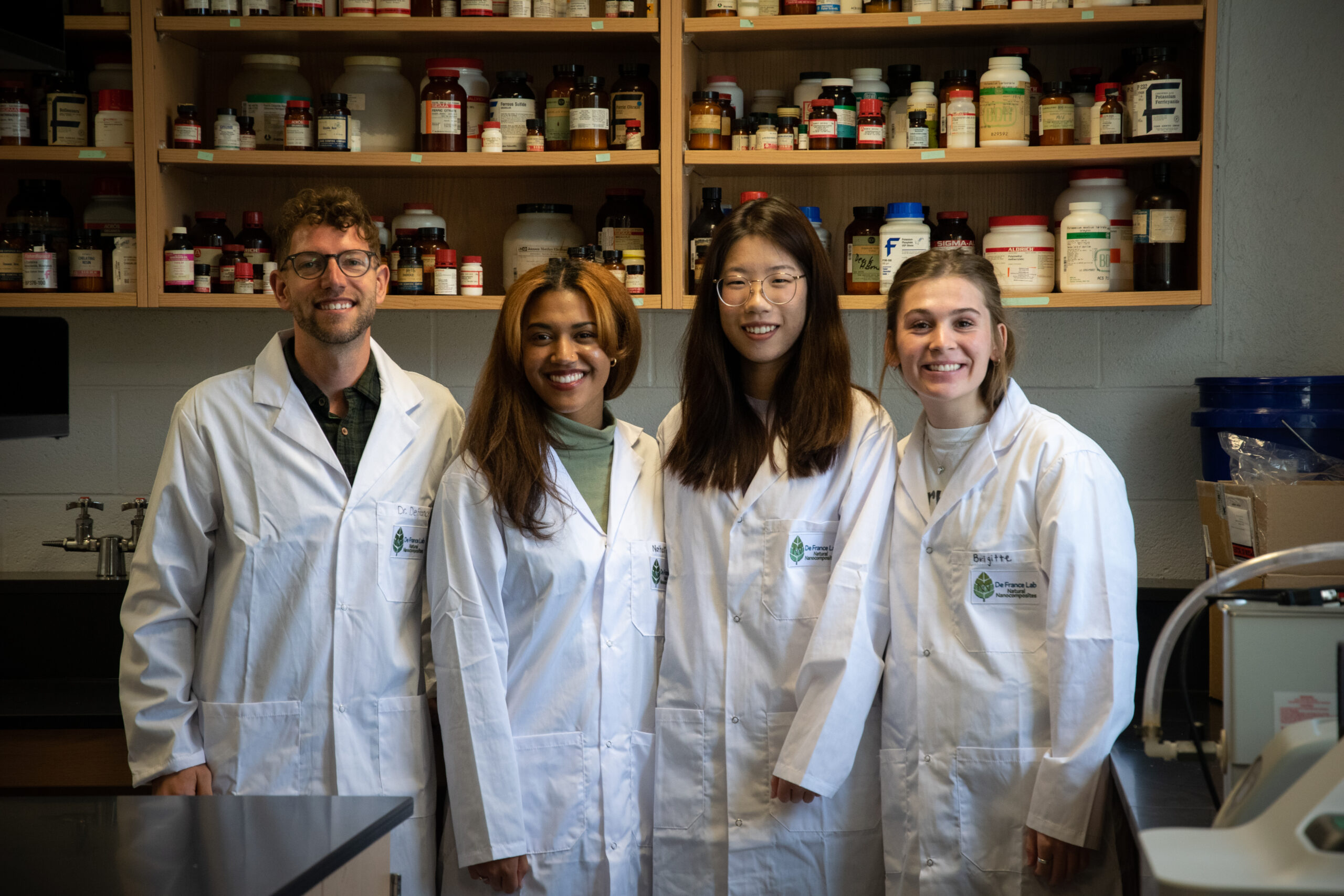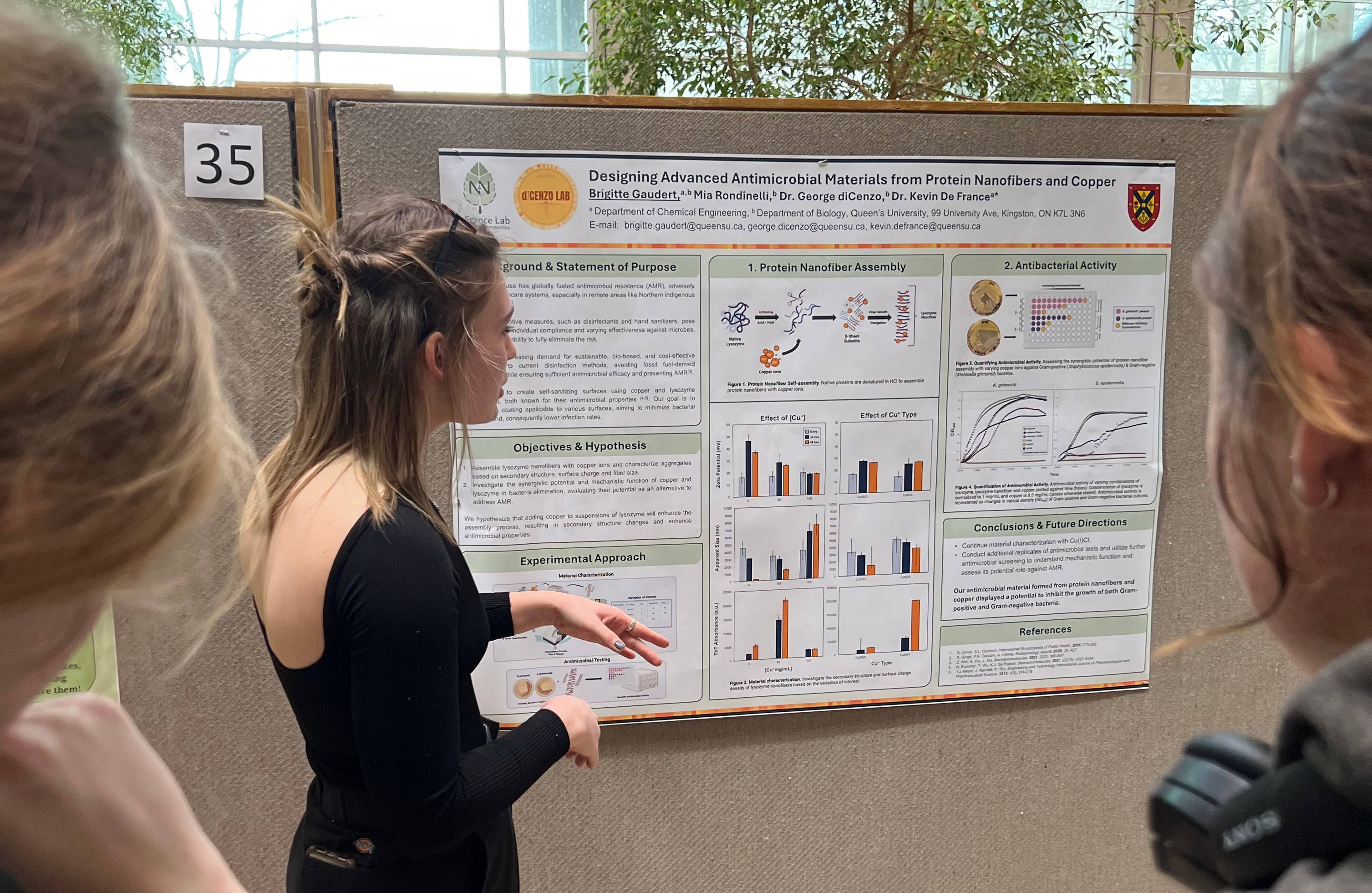Brigitte Gaudert, a recent biotechnology graduate, began her journey in undergraduate research in her third year when she came across an announcement from a new Assistant Professor in Chemical Engineering, Kevin De France, for a position specializing in natural sustainable materials. After meeting with De France about his research goals, and witnessing his passion for new discoveries, she knew the De France Lab for Natural Nanocomposites would be a good fit. Eager to learn more about the world of research, she applied and was granted an Undergraduate Student Summer Research Fellowship (USSRF).
“This experience allowed me to explore the world of chemical engineering in a supportive environment that encouraged risk-taking and being curious,” she says.
Her research project was focused on designing novel antimicrobial materials made from protein nanofibers and copper. This project was inspired by the rising concerns of antimicrobial resistance (AMR) and its impacts on healthcare systems, particularly in remote or underdeveloped regions such as northern Indigenous communities. There’s a growing need to find sustainable and cost-effective alternatives to current disinfection methods that ensure adequate antimicrobial efficacy, minimize AMR and remove current barriers faced by remote communities. By assembling two known antimicrobial materials (each with distinct advantages and disadvantages) they hope to create a new hybrid biomaterial that has greater antimicrobial activity than the sum of its parts. The end goal is to create a coating that can be applied to any surface to reduce the spread of bacteria and ultimately reduce infections rate.
“The most interesting and rewarding part of this project was its interdisciplinary aspect. I was fortunate to be part of a lab environment with a supportive supervisor who valued collaboration and encouraged me to expand beyond my field to develop solutions for societal challenges.”

Another benefit of this research is that Brigitte has gained professional skills such as presentation and dissemination of research. She presented her work at the McMaster University CREATE ContRoL Undergraduate Research Competition and presented a seminar and poster as part of her fourth-year thesis. She also attended the 2024 Canadian Chemical Engineering Conference in Toronto, having the opportunity to network with other like-minded students and world-renowned experts. She is finalizing her last experiments and preparing a manuscript for submission this upcoming spring.

This research experience has led Brigitte to pursue graduate studies. She will be starting a Master’s of Applied Science next year. Her experience at Queen’s provided her with relevant research experience and equipped her with valuable transferable skills essential for further academic and professional pursuits.
“I would highly recommend undergraduate research to any student. Even if you're unsure whether research is the right fit, engaging in undergraduate research at Queen’s helps develop applicable skills that contribute to any profession.”